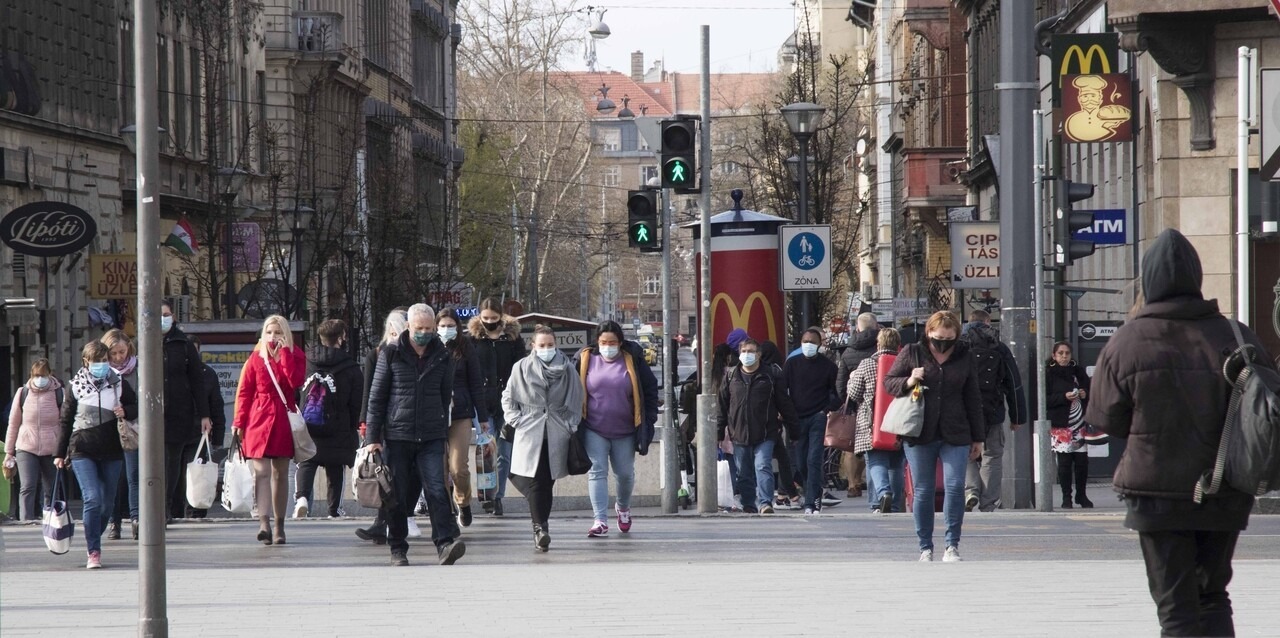Orbán: Hungary may be first in Europe to return to ‘normal life’

Hungary may be the first European country to return to “normal life” after the coronavirus pandemic, Prime Minister Viktor Orbán told public broadcaster Kossuth Radio on Friday.
At the same time, the pandemic is not over yet, Orbán warned, and urged Hungarians to observe the regulations “necessary for a safe life.”
So far, 4,483,598 people have been inoculated, Orbán said, adding that the country may pass the five million mark by the end of May, “maybe even around Pentecost”. Restrictions regarding wedding celebrations and other events, as well as the curfew currently imposed between midnight and 5am, will be lifted then, he said.
Immunity certificates will be required to attend “certain events drawing large crowds” until early to mid-August, he added.
The total tally of vaccinations may reach 6 million in Hungary, he said, adding that it was the personal responsibility of Hungarians whether they accept the vaccine.
Orbán slammed the opposition for its “pathetic failure on the pandemic front”. Protection against a pandemic is a national cause, and “trying to dissuade people from taking the vaccine or sowing mistrust against certain products is more than just a mistake,” he said.
Commenting on Hungary’s inoculation rate, ranked 10th in the world and first in the European Union, Orbán said it was a “good result… but the race is for the lives of Hungarians”.
While Hungary’s vaccination campaign is among the best, “compassion and help in dealing with pain will have to be a priority,” Orbán said, as “we have sustained heavy losses”.
EU countries lag behind the Hungarian vaccination plan by 1-2 months, Orbán said, adding that Hungary is inoculating 16-18-year-olds “while Western Europe is still [jabbing] pensioners.” He thanked Hungarian youth for over half of them registering for the vaccine.
There are currently 944,000 people who have registered but did not take the available vaccination, Orbán said.
They are presumed to be waiting for vaccines currently not in stock, he said. “Right now, that is mostly Pfizer,” he said, adding that once the 16-18-year-olds have been inoculated, 150,000 adults will be able to get the Pfizer vaccine ever week. Some 330,000 Pfizer vaccines arrive in Hungary every week, ca. 180,000 of which can be used as second jabs, he said.
Orban said that based on a report by the working team on vaccine management, sufficient amounts of vaccines are on stock in case a third jab is needed, possibly in the autumn or in the first quarter of next year.
Meanwhile, the government will start a campaign on Monday to encourage Hungarians abroad “from Tierra del Fuego or Patagonia to Miercurea Ciuc”, to register for vaccination in Hungary if they want to get the jab, he said.
Regarding his Thursday meeting with research biologist Katalin Kariko, the patent holder for mRNA-based vaccines, Orbán said her assertion that the method developed by her research team enabled swift responses to new virus mutations “should boost the nation’s sense of security”.
Government looking into extending loan moratorium for vulnerable
The government will decide whether to uphold the loan moratorium for vulnerable borrowers after consultation with the Hungarian Banking Association and the National Bank of Hungary (NBH), a government official said.
In an interview published in the Friday edition of business daily Világgazdaság, András Tallai, a state secretary of the finance ministry, welcomed the association’s proposal to extend the moratorium introduced to protect borrowers hit hard by the fallout of the coronavirus pandemic. The moratorium is set to expire at the end of June.
Tallai noted that the number of retail borrowers participating in the repayment moratorium fell from 1.6 million in April 2020 to 1.3 million at the end of February, citing NBH data. The share of corporate borrowers in the moratorium has dropped by 21 percentage points since May 2020 and now stands around 35,000, he added.
Source: MTI


